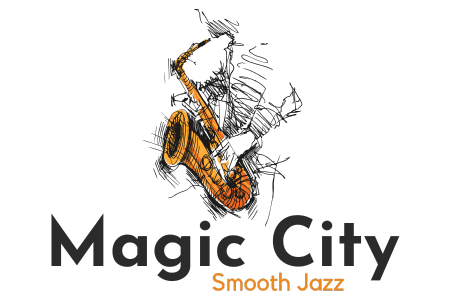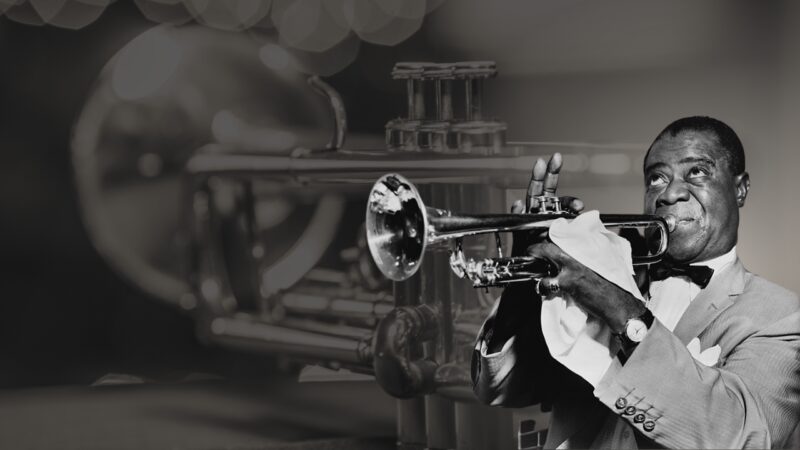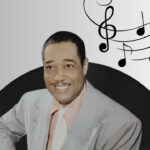Jazz – a genre that burst into the limelight in the early 20th century and forever revolutionized the music industry. From its birth in the African-American communities of New Orleans to its worldwide acclaim, Jazz has become an integral part of music history.
Here, we will take a deep dive into the lives and careers of 20 musicians who played a pivotal role in shaping this genre. We will unravel their musical journeys and take a peek at the indelible footprints they’ve left in the sand of Jazz history.
1. Louis Armstrong
Often hailed as the founding father of jazz, Louis Armstrong took the genre to heights never seen before. Born into poverty, Armstrong’s story is one of triumph against the odds, proving that talent coupled with unwavering dedication can make legends.
His famous works like ‘What a Wonderful World’ and ‘La Vie En Rose’ continue to captivate audiences even today. Armstrong’s distinctive raspy voice and innovative skill with the trumpet set the foundation for the development of Jazz as a unique music genre. His influence on the jazz world is immeasurable.
2. Duke Ellington
Edward Kennedy “Duke” Ellington was more than just a jazz musician – he was a composer, a bandleader, and above all, an icon. Duke Ellington led his band for over fifty years, creating a repository of over two thousand compositions.
A master of the big band sound, Duke’s compositions expanded the boundaries of the genre. Tracks like ‘Mood Indigo,’ ‘Sophisticated Lady,’ and ‘In a Sentimental Mood’ showcase his genius. His lasting legacy is a testament to his significant contribution to jazz and American music at large.
3. Charlie Parker
Charlie Parker, also known as ‘Bird,’ was one of the key figures in the development of bebop, a form of jazz characterized by fast tempos, complex chord progressions, and virtuosic technique.
Parker’s innovative approaches to melody, rhythm, and harmony exerted a profound influence on his contemporaries. With classics such as ‘Yardbird Suite’ and ‘Ornithology,’ Parker not only changed the way artists played but also the way listeners heard music, creating a shift in jazz and a new landscape for music overall.
4. John Coltrane
John Coltrane was a revolutionary force who redefined the parameters of jazz during his short life. His work spans a wide range of styles, from bebop and hard bop to the avant-garde.
Coltrane’s intense and almost religious approach to music led to the creation of some deeply emotional and transcendental works like ‘A Love Supreme’ and ‘My Favorite Things’. His pioneering explorations reshaped jazz and continue to inspire musicians of all genres.
5. Billie Holiday
Billie Holiday, nicknamed “Lady Day,” was an iconic jazz and swing music singer with a career spanning nearly thirty years. Her vocal style, inspired by jazz instrumentalists, pioneered a new way of manipulating phrasing and tempo.
Holiday’s poignant voice, showcased in timeless classics such as ‘Strange Fruit’ and ‘God Bless the Child,’ made her one of the finest singers in the history of jazz and pop music. Her emotional delivery and ability to connect with the material made each song uniquely her own.
6. Thelonious Monk
Thelonious Monk is remembered for his unique improvisational style and his contributions to the jazz repertoire, including classics like ‘Round Midnight’ and ‘Blue Monk’. A pivotal figure in the creation of bebop, Monk wrote music that was as challenging and innovative as his piano playing.
Monk’s unique style was characterized by his percussive attack, innovative use of space, and a tendency towards playing dissonant notes and intervals, all of which combined to create a sound that was truly his own. His legacy continues to inspire countless musicians and listeners around the globe.
7. Ella Fitzgerald
Known as “The First Lady of Song,” Ella Fitzgerald was an American jazz singer admired for her purity of tone, impeccable diction, and ability to mimic instrumental sounds. Her career spanned six decades, and her influence on the genre is incalculable.
Fitzgerald’s interpretations of the Great American Songbook are still considered the gold standard. Her scat singing in tunes like ‘How High the Moon’ and ‘A-Tisket, A-Tasket’ demonstrate the fluidity of her voice and her exceptional musical inventiveness.
8. Miles Davis
Few figures in history have been as influential in the world of jazz as Miles Davis. His career, spanning five decades, covers the history of jazz from post-bop through modal music and jazz-rock fusion.
Davis was never one to stand still – he constantly pushed boundaries and explored new musical territories. Albums like ‘Kind of Blue’ and ‘Bitches Brew’ reflect his ceaseless innovation. His unique style and innovative approaches to improvisation and group interaction have left an indelible mark on jazz.
9. Dizzy Gillespie
Dizzy Gillespie, with his puffed cheeks and bent trumpet, was a jazz trumpet player, bandleader, composer, and singer. He is one of the pioneers of bebop, but his innovations also extended to Afro-Cuban jazz, which he helped to popularize in the mid-20th century.
Dizzy’s signature pieces like ‘A Night in Tunisia’ and ‘Salt Peanuts’ showcase his virtuoso style and complex, rhythmic compositions. His collaborations with other jazz greats, such as Charlie Parker, are legendary, and his impact on the genre was transformative.
10. Sarah Vaughan
Sarah Vaughan, known as “Sassy” and “The Divine One,” was an American jazz singer noted for her rich voice, wide range, and the dramatic intensity of her performances. She seamlessly blended jazz with popular music.
Vaughan’s ability to infuse her songs with a deep sense of emotion made her a favorite among jazz enthusiasts. Her most popular songs like ‘Misty’ and ‘Broken-Hearted Melody’ show her range as an artist and her place in the pantheon of jazz singers.
11. Art Tatum
With his flawless technique and innovative style, Art Tatum is often cited as one of the greatest jazz pianists of all time. His incredible speed, long, complex runs, and the constant surprising harmonic twists were all a part of Tatum’s magic.
Despite being visually impaired, Tatum had an uncanny ability to reproduce songs after hearing them just once. His versions of ‘Tiger Rag’ and ‘Tea for Two’ are legendary, showcasing his extraordinary skill and improvisational genius. He expanded the limits of what was considered possible on the piano.
12. Count Basie
Count Basie, born William James Basie, was an American jazz pianist, organist, bandleader, and composer. He led his “Count Basie Orchestra” for almost 50 years and introduced several generations of listeners to the big band sound.
Basie’s music was characterized by his distinctive piano style and his genius for organization and continuity, as shown in classics like ‘April in Paris’ and ‘Jumpin’ at the Woodside.’ His band became the model for big-band swing, a force that shaped the sound of American music.
13. Dave Brubeck
Dave Brubeck, an American jazz pianist, is best known for his contributions to cool jazz through his use of unconventional time signatures, distinct rhythms, and complex harmonies. He became a household name in the genre in the 1950s and 1960s.
His groundbreaking album ‘Time Out,’ with its hit single ‘Take Five,’ was the first jazz album to sell over a million copies. Brubeck’s music, rich in experimentalism and sophistication, and his extensive use of polyrhythm, altered chords, and innovative time signatures have influenced countless musicians.
14. Nat “King” Cole
Nat “King” Cole was a versatile American musician who first came to prominence as a leading jazz pianist. He owes much of his popular musical acclaim to his soft, baritone voice, which he used to perform in big band and jazz genres.
Cole’s repertoire was vast, with over a hundred songs that topped the charts. Songs like ‘Unforgettable,’ ‘When I Fall in Love,’ and ‘Mona Lisa’ have since become standards in the music industry. His smooth vocals and charismatic stage presence paved the way for other African-American artists.
15. Charles Mingus
Charles Mingus, a virtuoso bass player, accomplished pianist, bandleader, and composer, was one of the most important figures in twentieth-century American music. His compositions retained the hot and soulful feel of hard bop and drew heavily from black gospel music and blues.
Mingus’ pieces, like ‘Goodbye Pork Pie Hat’ and ‘Haitian Fight Song,’ are characterized by their complex texture and rich orchestration. His works are a testament to his creative genius and his fervent advocacy for the artist’s freedom of expression.
16. Benny Goodman
Known as “The King of Swing,” Benny Goodman was an American jazz clarinetist and bandleader. He led one of the most popular musical groups in America during the Swing Era of the 1930s and 1940s.
Goodman’s hits such as ‘Sing, Sing, Sing’ and ‘Stompin’ At The Savoy’ brought jazz into the mainstream. His 1938 concert at Carnegie Hall is considered a defining moment in the history of the genre, as it was one of the first times that jazz was performed in a concert setting.
Within the realm of jazz music, a select group of virtuosic clarinet players emerged, fundamentally reshaping the genre and securing their place among the ten best, their contributions forever etched in the annals of musical history.
17. Bill Evans
Bill Evans was an American jazz pianist and composer who mostly played in trios. His use of impressionistic harmony, his inventive interpretation of traditional jazz repertoire, and his syncopated and polyrhythmic melodic lines influenced a generation of pianists.
With albums like ‘Waltz for Debby’ and ‘Sunday at the Village Vanguard,’ Evans brought a new depth of emotion and sophistication to jazz piano. His sensitive touch and deep understanding of harmony made him one of the most important pianists in the genre’s history.
18. Wes Montgomery
Wes Montgomery was one of the greatest jazz guitarists of all time. His unique and influential approach, characterized by the use of his thumb to pick the strings and his extensive use of octaves, continues to inspire jazz guitarists.
Montgomery’s recordings, such as ‘West Coast Blues’ and ‘Bumpin’ on Sunset,’ demonstrated his ability to blend a deep, bluesy core with complex, bop-influenced lines. He left a rich legacy that has proven to be a wellspring of inspiration for successive generations of musicians.
These legendary musicians, hailed as the finest in blues guitar history, have left an indelible mark on the genre, ensuring their place among the most revered icons for every music lover to discover.
19. Ornette Coleman
Ornette Coleman was a pioneering American jazz saxophonist and composer. He was one of the major innovators of the free jazz movement of the 1960s, a term he coined with the title of an album.
Coleman’s music was characterized by “harmolodics,” his philosophy of music where harmony, movement, and melody all share the same value. Recordings like ‘Lonely Woman’ and ‘Free Jazz’ showcase his revolutionary approach and extraordinary musical vision.
20. Nina Simone
Nina Simone was an American singer, songwriter, pianist, and civil rights activist whose musical style fused gospel and pop with classical music, in particular Johann Sebastian Bach, and accompanied expressive, jazz-like singing in her contralto voice.
Simone’s work, like ‘Feeling Good’ and ‘I Put a Spell on You,’ transcends conventional genre boundaries. Her music has influenced countless artists across various genres, and her voice continues to be a beacon of individuality and liberation.
Closing Thoughts
Each of these artists, in their own way, has made an indelible impact on the genre. They have all shaped and evolved the genre, experimenting with form and style, and their music continues to inspire artists and audiences around the world. Their contributions to jazz make them truly deserving of the title “The Best Jazz Musicians of All Time.”
In the thriving Atlanta jazz scene of 2024, these ten clubs stand out as top destinations for music enthusiasts seeking unforgettable live performances.







